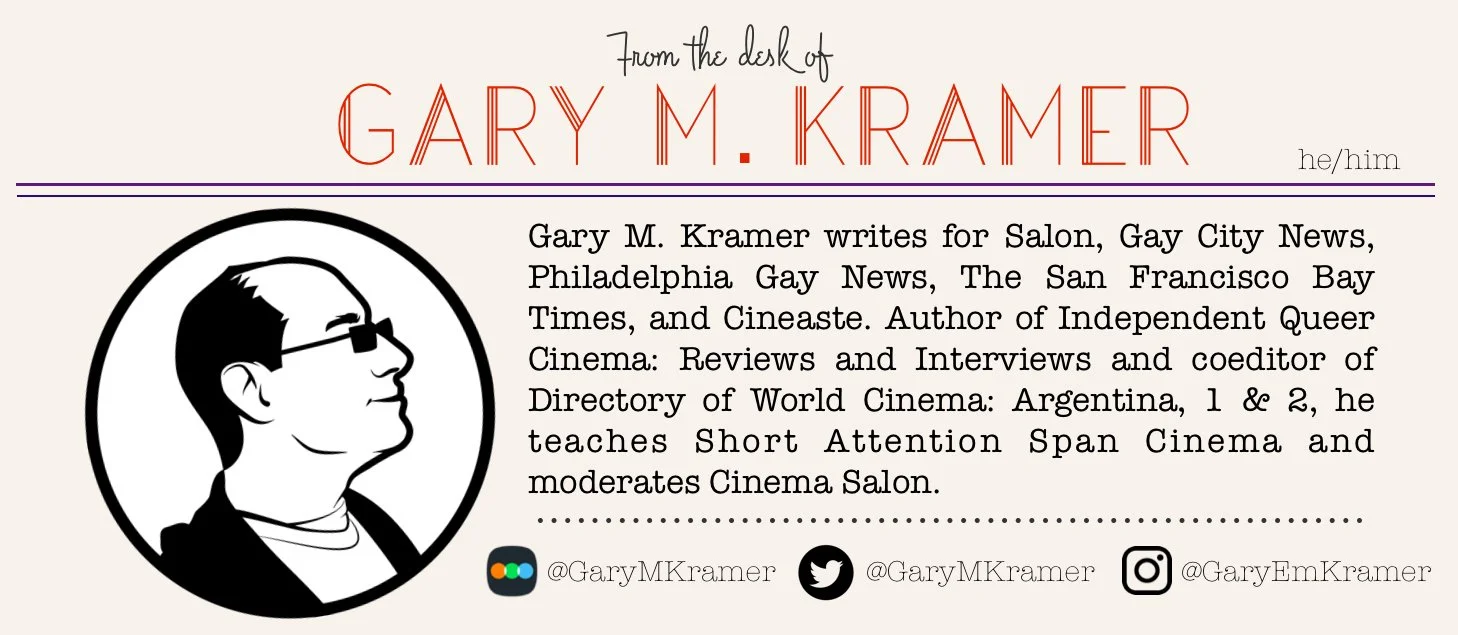Romance Week: Groundbreaking in 1986, MALA NOCHE remains fresh and exciting
by Gary M. Kramer, Staff Writer
Romance doesn’t always have to be hearts and flowers. My favorite romances are bittersweet films about unrequited love. Gus Van Sant’s extraordinary feature debut, Mala Noche, is one such film and my favorite film in his oeuvre.
This gritty tale, based on an autobiographical novel by Walt Curtis, has Walt (Tim Streeter) hopelessly smitten with Johnny (Dough Cooeyate) an 18-year-old Mexican—maybe he is 16—who stops by the store he works at. Johnny doesn’t speak English and Walt’s efforts to communicate with him are hit-and-miss at best. Trying to invite Johnny over for a meal is a struggle, and Johnny agrees only if he can bring his buddy, Roberto Pepper (Ray Monge) along.
Walt acknowledges that Johnny doesn’t ever want to be alone with him—it’s part of the “game” they play in their one-sided romance—but Walt wants to be alone with Johnny. He admires Johnny’s pimples on his chin and his “sleepy all the time” look. He speaks his desires in aching voiceovers, such as, “I want to drink this Mexican boy Johnny…. He makes my heart throb—thumpety, bum, bum, bum, bum, bum—when I see him,” and “I have to show him that I'm gay for him. To show him how I feel.”
Viewers will understand Walt’s ardent longing. Van Sant films Johnny in a way that makes him dreamy but also elusive. The film’s grainy black-and-white cinematography and chiaroscuro lighting contribute to the dreamlike/nightmare scenario, especially during a fabulous sequence where Walt fantasizes about meeting Johnny in his room and laying down at his [and Roberto’s] feet “like a dog… in a dramatic, macho act.” The reality of this plan, which involves Walt getting caught sneaking up the fire escape, is both comic and pathetic.
It is easy to root for the sad sack Walt who seems to take all his lovesick blows in stride. When Walt takes Johnny and Roberto out driving, they strand Walt out on the road, teasing him and not always with affection.
Walt is just blinded by love and his efforts to be with Johnny show the chase is the relationship. Walt offers Johnny $15 to sleep with him; he says he would give Johnny $100, but he just doesn’t have the money. Johnny, however, never lets Walt touch him, often removing his hand or arm when Walt gets too familiar. Walt spends time with Roberto because Johnny is either uninterested or unavailable.
When Roberto is locked out of his room on night, he stays with Walt, and they have sex. Van Sant shrewdly uses images of boiling water and the sound of a passing freight train to convey the sexual intensity of the moment. The camera fetishizes Roberto’s naked torso, but the scene is hardly romantic. Roberto, it turns out, is a painful lover. “I think he tried to use his cock like a weapon on me,” Walt claims in voiceover the next day, complaining about how sore his ass is. This scene leads to Walt’s most honest voiceover. “That's about as close to Johnny as I'll ever get; even it if was a shit bad night.” Mala noche, indeed.
One can read Walt’s relationship with Roberto being a substitute for his imagined romance with Johnny. But as the film shows, Walt and Roberto are not compatible; even Walt’s playful wrestling with Roberto gets rough as Roberto resists. But the “impossibility of love” is what resonates. It is why Mala Noche is so striking. It throbs with longing and heartache.
Van Sant’s film came out in 1986, six years before the era B. Ruby Rich identified the “New Queer Cinema” movement. It was a groundbreaking film about queer desire, and a ice contrast to the only other gay American feature theatrical release that year, Parting Glances, by Bill Sherwood, a landmark American independent film, and one of the first features to address AIDS. Both films were low-budget productions that featured gay characters that eschewed stereotypical portrayals of gay men and paved the way for more realistic representations of queerness and unabashed desire. Mala Noche was groundbreaking for its time, and it remains as fresh and exciting as it was on release. This may be why I have so much love for it.
Support MovieJawn Staff
〰️
Support MovieJawn Staff 〰️
With the death of so much print media and meaningful journalism, it is important now more than ever to support the writers and outlets you love.
If you enjoyed this article, show your support by donating to our writer. All proceeds go directly to the writer. Recommended donation is $5.





